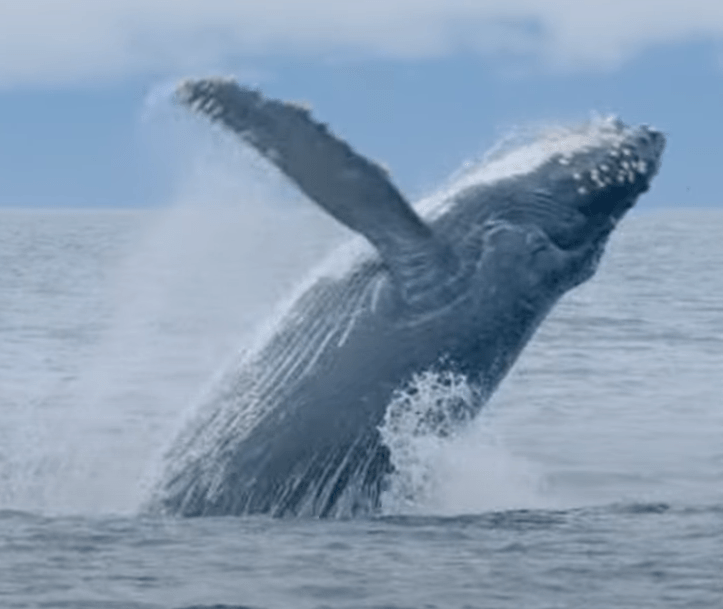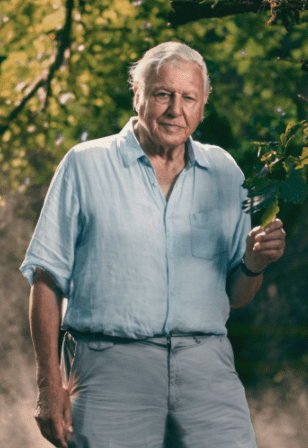By Richard Mellor in California
“An educator in a system of oppression is either a revolutionary or an oppressor.”, Lerone Bennett Jr.
The Year Earth Changed is a short but powerful documentary narrated by David Attenborough about the 2020 COVID-19 lockdown and the affect this has had on our planet’s wildlife. Its findings are proof positive that as things stand, human activity is destructive and harmful to wildlife and the natural world of which we are a part and on which we depend.
From the moment it begins, the viewer cannot help but marvel at some of the changes in the first few months of the global lockdown. In the first three months global air travel was down 90% worldwide, with 114 million fewer travellers than at the same time a year earlier. “The moment we pause, earth can breathe again” we are told, and in a town in India, some 200 kilometres from the Himalayas, many residents head for the rooftops to see this massive mountain range for the first time, as pollution declines.
Giant sea turtles return to the beaches where they were hatched, emptied of the human hordes. Hundreds of turtles lay more eggs that will also have a much greater chance of hatching and surviving, increasing the population of these creatures that have made this journey for millions of years and whose numbers have been declining due to human activity.
Cruise ship brings a million visitors a year
The oceans are affected as well, as the first three months of the lockdown saw a 17% drop in global shipping traffic. Humpback whales in Alaska that have to share their waters with cruise ships that bring a million visitors a year to the area, have been recorded talking to each other more frequently and in “new ways”. Mothers have been seen leaving their calves to join other adults to hunt, something that has been rare. The reason is that the lockdown and the absence of tourists has meant that it is “25 times quieter underwater”. Whales can communicate greater distances and can hear their calves better if danger lurks.

There are so many examples of the relief the natural world and other animals in it experienced through the lockdown. The mighty River Ganges, for example, has seen an 80% increase in oxygen levels. Surely fish must like this new world.
The pandemic has “…allowed scientists to measure the scale of the impact of humans” on the natural world, Attenborough says, and this is a good thing. The results are frightening, and confirm, in this writer’s mind anyway, that we cannot stop what is a looming catastrophe within the confines of the capitalist system. Sooner than later, we will reach a tipping point and be facing the end of life as we know it.
This is where documentaries like The Year Earth Changed, Artifishal and others fall to the ground. In a period where it is painfully clear that band-aids – the usual solution – will not avert the danger, we are left with little hope that we can change things.
Fast-growing rice to feed the elephants
A perfect example in the documentary is a village in India where elephants, whose habitat has been declining due to human populations, have been destroying crops. Under the guidance of a conservation trust, villagers, rather than staying up all night to drive elephants away, have been planting a fast growing wild rice between the forest edge and their crops. The elephants eat the rice rather than the crops. Villagers who have returned home from work in the cities due to the lockdown, increased the labour force. Though the documentary doesn’t say it, it is unlikely that these workers receive much of a stimulus cheque from the state.
But this example will be seen by any thinking worker as akin to looking for a needle in a haystack. An Indian elephant consumes upward of 300 pounds of plant material a day. This problem won’t be solved by a village in India and a non-profit conservation organisation, well-intentioned or not; the road to hell is paved with good intentions. It is a crisis of global proportions and requires a global response.
All through the documentary we are reminded that humans are the problem. We are all responsible and all we have to do is… “think of how we can co-exist and share our spaces.” We just have to choose the right thing to do, whatever the right thing is. In the African game reserves, the noises of tourists and their vehicles every day are harming the cheetah’s ability to hunt and protect its young. The answer: to “promote good conduct among tourists and tour guides”. This is not a serious answer.
I do not think the term capitalism or any mention that we live in a system of production is mentioned at all. Yes, it is human activity that is the problem, but it is human activity under certain social conditions. But all humans do not have the same social power and the same global footprint. Social organization in human history has taken different forms.
The social system is never mentioned
We have travelled in time from our beginnings through tribal organization of varying types in which the social product is collectively appropriated, through class societies: slavery, feudalism, and the social system that has achieved global dominance and that threatens our very existence, the capitalist mode of production.

What is it that causes David Attenborough and all the brilliant scientists involved in the making of this documentary to never allude in any way to the fact that we function within a system of production? Are they not aware that this system of production that we call capitalism is a class system in which a small section of society own, control and manage the means of production and what we produce as a global society? We exist in a system of capitalist globalisation, and they know it.
This exclusion is not an accident. For to point to how society is organized, to point to the capitalist system as the source of the problem, means seeking an alternative to it. Every ruling class teaches that the system it governs is the ‘high point’ of human civilization, and all of them, the feudal ruling class and our own capitalist class and the slaveowners of antiquity and colonial America all use religion, the argument that the system they govern is ordained by a creator to justify their rule. Layers of functionaries, intellectuals, religious charlatans, administrators and educators exist to give this rule credibility.
The Year Earth Changed leaves us with only one conclusion, that human character flaws are the root cause of environmental destruction. Wildlife is better off if humans are not present, but there is ‘hope’ if we simply think good things and be good people. This is what we are left with. It internalizes the anger; we direct the blame at ourselves and “human nature”, which is not a fixed concept but is determined by social conditions. For the capitalist class this is the safest bet. It demoralises. It is no answer at all, and things can continue on, profit still reigns, and the abyss draws closer.
Production managed by a small private clique
It would be arrogant, to say the least, for me to claim I have all the answers. But certainly, by removing the productive forces from a small private clique that sets production in motion on the basis of private gain and collectivizing production is a necessary step. How we produce food, build shelter, provide health care and social infrastructure, transport people and so forth, has to be motivated and determined by social need and in particular, in harmony with the natural world as opposed to in conflict with it. I am confident, that those that produce the wealth in society through our collective labour power, can resolve the crisis capitalism has created for us and the planet. We know what we need and what is best for us.
Those closest to the land, who work the land, and the indigenous communities that capitalism has not yet stripped from it, understand how better to live in harmony with it and the creatures that depend on it. The collective, conscious brain of the world’s workers can provide the solution to capitalism and the madness of the market. Capitalism cannot be made ‘nice’. Its progressive period is long gone.
The Year Earth Changed is a clear confirmation of the future of capitalism. The most important conclusion we must draw from this documentary is under different social conditions, how quickly the horrific damage inflicted on humanity and all life on this planet by capitalism and the so-called free market can be reversed. A new world is truly possible as the slogan goes.
A global federation of democratic socialist states not based on competition and the wars and conflict that flow from it, but cooperation and human solidarity is not utopia; it is a necessity if we are to survive.
From the US socialist website, Facts for Working People. The original can be found here.



